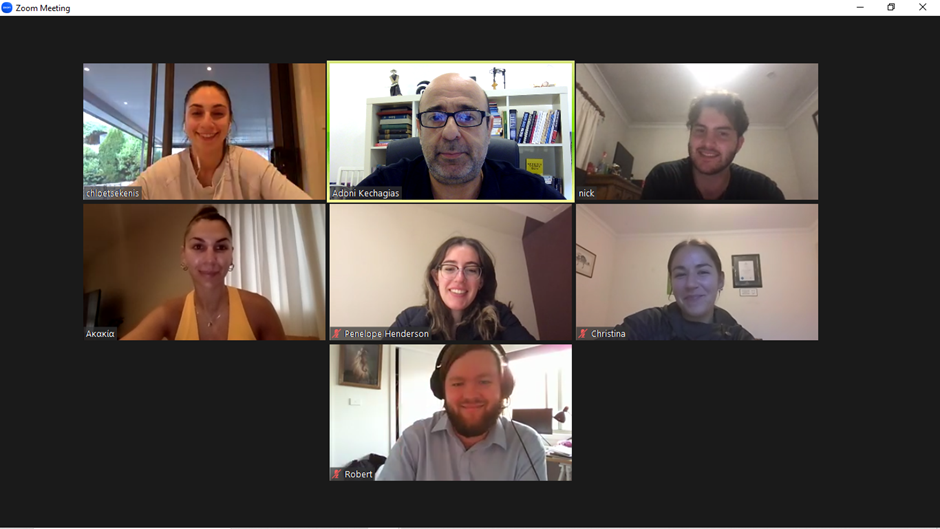Don’t let age stand in the way of learning a second language. The Online Adult School of the Greek Community of Canberra is offering Greek language classes to adults and enrolments are already at an all-time high.
To find out more, The Greek Herald spoke with Head Tutor Adoni Kechagias who encourages everyone to learn Greek.
Tell us a bit about yourself:
My name is Adoni Kechagias and I am the Head Tutor of the Online Adult School of the Greek Community of Canberra. I am also a published author of a screenwriting book in Greek and an Australian Film Television and Radio School Certified Script Assessor. Recently, I graduated an RMIT course for Interpreting and Translating. I have completed my exams for my NAATI Translating License and waiting for the results with fingers crossed.
How many students are currently enrolled in adult classes at Canberra’s Greek school?
We have currently 50 students, enrolled in seven online classes of Beginners, Intermediate and Advanced levels.
What do you offer in the adult classes at Canberra’s Greek school?
We offer to every student the opportunity to learn Greek or to improve and advance their current knowledge of Modern Greek. Based on the levels and syllabus established by the Common European Framework of Reference for Languages (CEFR) and the Australian curriculum, our classes aim to enhance reading and listening comprehension, writing, speaking and grammar.

Who can enrol into the classes? Do people have to be Greek?
Everyone can enrol into our classes. The fact that currently half of our students are not of Greek background is proof that everyone can have a genuine interest in learning Modern Greek. Non-Greek background students usually face the additional challenge of not being able to practice in real life what they learn in the classroom and that’s another reason why we are always extra sensitive, supportive and welcoming to these students.
Why do you encourage people to enrol and learn Greek?
Languages help us connect with others. Most of the times people study a language so they can communicate better with other people. Also, languages can advance a person’s career.
But apart from the practical rewards, learning a foreign language is like taking your brain to the gym. It feeds the brain, improves memory, enhances problem solving and critical thinking skills. It also enhances concentration and improves your listening comprehension ability. Learning a second “logic” will result in great flexibility of mind and enhanced creativity.
Languages help us connect with other cultures. A great understanding of the cultures promotes greater tolerance, empathy, and acceptance of others.
After studying a few languages myself, all I can say is that I consider learning another language as critical as learning mathematics, for a person’s development.
Is there anything else you’d like to say?
Learning a foreign language is not an easy thing. It is a long and time-consuming process that requires patience and dedication. I strongly encourage potential learners to research before enrolling in any language course. Ask themselves questions like: “Am I ready to dedicate time for training and studying for a long period of time?” or “have I done the necessary arrangements to provide myself the opportunity to practice what I learn in the classroom?” or even “Is the language I have chosen to study an easy or a more complicated one and what kind of challenges does it involve?”
Talking about learning a language online, things that should also be considered are the person’s ability to learn through online platforms and the ability to spend more time in front of a screen.
READ MORE: Learn Greek with a Cypriot twist at the Cyprus Community of NSW’s language school.

